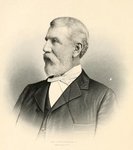Thomas Pinckney (American Civil War) facts for kids
Quick facts for kids
Captain
Thomas Pinckney
|
|
|---|---|
 |
|
| Born | August 13, 1828 Charleston, SC |
| Died | November 14, 1915 (aged 87) |
| Buried |
Magnolia Cemetery
|
| Allegiance | |
| Service/ |
|
| Years of service | 1861-1865 |
| Rank | Captain |
| Battles/wars | Battle of Haw's Shop |
Captain Thomas Pinckney (born August 13, 1828 – died November 14, 1915) was a rice farmer from the Southern United States. He was a soldier for the Confederate States during the American Civil War. He was also the grandson of a famous general named Thomas Pinckney. Thomas Pinckney was known as one of the "Immortal Six Hundred." This was a group of soldiers who were held as prisoners during the war.
Contents
Early Life of Thomas Pinckney
Thomas Pinckney was the fourth child in his family. He was the second son born to Charles Cotesworth Pinckney and Phoebe Caroline Elliot Pinckney. He grew up in Charleston, South Carolina. His family also owned large rice farms along the Santee River Delta.
These farms included places like Fairfield Plantation and El Dorado Plantation. To avoid the hot summers and illnesses in the South Carolina Lowcountry, he often stayed in the cooler mountains of South Carolina and North Carolina. He studied at the University of Virginia for a time. Later, he returned to Charleston and then New York to study medicine.
Thomas Pinckney and the Civil War
When the Civil War began, Thomas Pinckney helped create a group called the St. James Mounted Riflemen. Their main job was to protect the family's rice farms along the Santee River from attacks by Union soldiers. He even used his land at Echaw Plantation to build a fort called Battery Warren. This fort helped protect a Confederate railroad bridge over the Santee River.
Over time, Pinckney and his men joined larger military groups. They were first led by Major Arthur Middleton Manigault. Later, they served under General M. C. Butler and were sent to Virginia. During the Battle of Haw's Shop, Pinckney was captured by Union forces.
The Immortal Six Hundred
As a prisoner of war, Thomas Pinckney faced very difficult times. He was nearly starved. He was also held in a dangerous area at Morris Island by Union soldiers. This was done in response to how Confederate soldiers treated Union prisoners.
Pinckney and the other soldiers held there became known as the "Immortal Six Hundred." They earned this name because they refused to promise loyalty to the United States. Eventually, Pinckney was traded for Union soldiers and released.
Life After the War
After the Civil War ended, Thomas Pinckney went back to his family's farms on the Santee River. He hoped to get the farms working again to grow rice. Many of the formerly enslaved people, now called freedmen, were still living on the farms. They had nowhere else to go.
After many talks, many freedmen agreed to work on the farms. They would live on the land and get a share of the crops. However, floods and bad weather made it hard to grow rice. Also, the price of rice became very low. In 1886, Pinckney finally stopped farming rice. This ended nearly 150 years of his family growing rice on the Santee.
Thomas Pinckney was married two times. His first marriage was to Mary Stewart in 1870. After Mary passed away, he married Camilla Scott in 1892. He had one son from his first marriage, Charles Cotesworth Pinckney. From his second marriage, he had a daughter, Josephine Pinckney, who became a writer. He lived in different places, including with his wife's family and back in Charleston. He passed away in Charleston and is buried in Magnolia Cemetery.
 | Percy Lavon Julian |
 | Katherine Johnson |
 | George Washington Carver |
 | Annie Easley |

